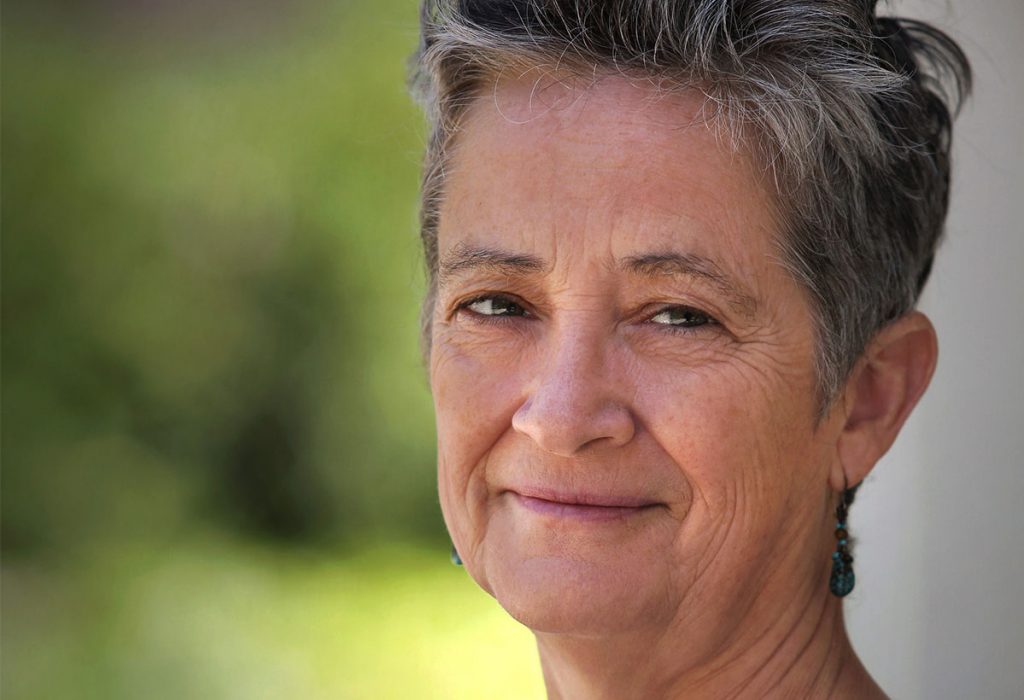Upon returning from sabbatical leave in spring 2021, Professor Elisabeth Le Guin, esteemed faculty member within the Departments of Music and Musicology, will assume a critical new role as Special Assistant to the Inaugural Dean for Faculty Development and Gender Equity. In this capacity Professor Le Guin will support and develop the interests of School of Music faculty, with special attention to gender issues, creating faculty development opportunities and overseeing events to help guide initiatives forward. This new position is part of Le Guin’s Pathways to Retirement agreement; after her retirement in July 2022, she hopes to continue to contribute to the School of Music as an emerita.
“I treasured Elisabeth’s perspective and insight when she was a member of Dean’s Cabinet,” said Inaugural Dean, Eileen L. Strempel. “I am excited for the return of her faculty voice in support of this important work, which is crucial to creating a vibrant and diverse professoriate.”
We connected with Professor Le Guin for a Q&A to discuss her new role and how she envisions being a resource for faculty.
● What types of initiatives do you hope to implement in this new role?
I will begin by asking a series of open-ended questions of my colleagues —likely through a combination of polling, and one-on-one or small-group conversations—so that I may arrive at a collective definition of this role. I intend to prioritize the needs and voices of women and non-binary faculty, but my efforts will include all faculty; gender oppression is systemic and affects everybody.
Some of the questions I hope to explore with our ladder and contingent faculty include:
What do you see as the greatest challenges to your professional life that connect to your gender positioning?
How can the School of Music create safe, effective spaces for imagining alternatives to these challenges?
What structures and resources outside of our school can we draw upon to address these challenges?
● Why do you feel it’s important to support women and non-gender binary faculty and how can others within the School of Music support this work?
One reason is quantitative. In our school there are currently gross gender imbalances in some areas of the faculty. It’s not and nor can it be my charge to change that—it’s a necessarily slow process that is handled through the University’s hiring and advancement protocols. However, what can and should be changed is any tendency to take the oppressive structures that create gender inequality in the academic music professions for granted.
We—by which I mean, professional academics in the USA right now—have a special responsibility to analyze and articulate the oppressive structures, such as racism, sexism and classism, that diminish and blight contemporary life. It’s our responsibility to the population at large, because we’re the ones who got all that training in analyzing and articulating things! But we won’t do a very good job at this if we can’t name and face these structures as they shape our own professional lives, and don’t begin to imagine how we’d change them right here, right now, among ourselves. Change begins at home.
Everyone in the School can support this work. I want to engage faculty who identify as male or gender-binary; it’s important to raise consciousness and generate allies among dominant populations. And I specifically hope to explore the intersectionalities of my charge with the work already being done by the School of Music’s Anti-Racism Committee, and with University-wide labor advocacy work being done on behalf of contingent faculty. None of these areas can really be separated.
● Can you describe what this work means to you personally and professionally?
I’ve identified as a woman for my whole career as a musician and as an academic. It’s been a successful career, and it would be easy to thank the advances that have been made in the professional status of women during my lifetime, and leave it at that.
The more established I become, however, the more I see how the academic deck is still stacked toward a rigid, exclusionary gender system, and the harmful ways this impacts all of our lives. The hardest part in some ways has been, recognizing the hurt it’s done me even as I have benefitted by it: how easily self-doubt and self-diminishment come, even after all these years!
Acknowledging this, and struggling with it, has better equipped me to see the harmful effects of gender oppression in the lives of other scholars—effects that are intensified for contingent and junior faculty by our disintegrating economic climate.
I feel outrage about this, as I do about many injustices in contemporary American life, but I’m old enough to know that outrage is a brief candle. What’s needed is careful, sustained, collective work—and it’s hard work! —to deconstruct these systems that exclude, diminish and harm, and to imagine systems that include, amplify, and nurture. We senior scholars have a special responsibility here, and I’m honored to have been asked to step up to that responsibility in this way.
Professor Le Guin begins in her new role spring quarter of 2021.


